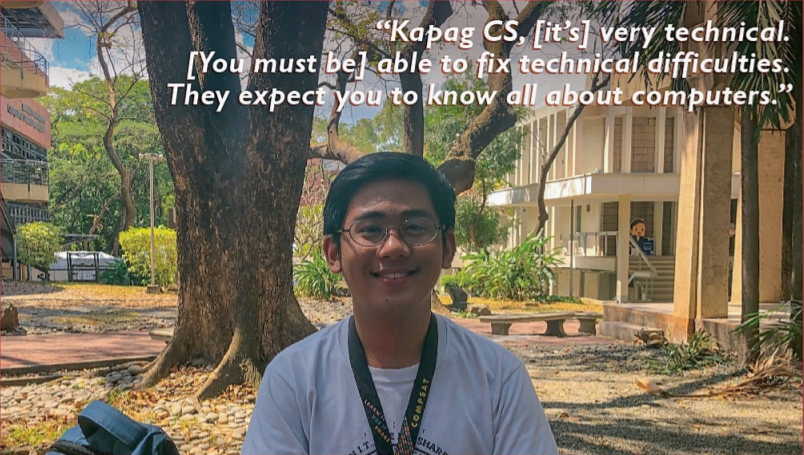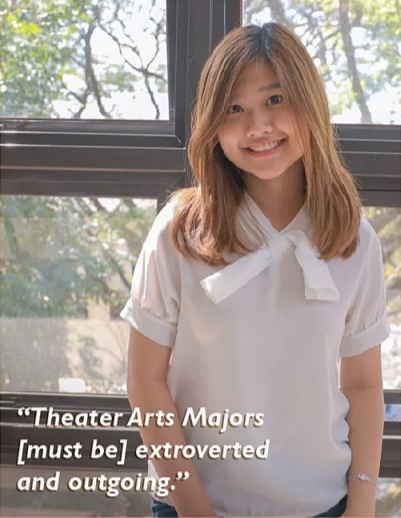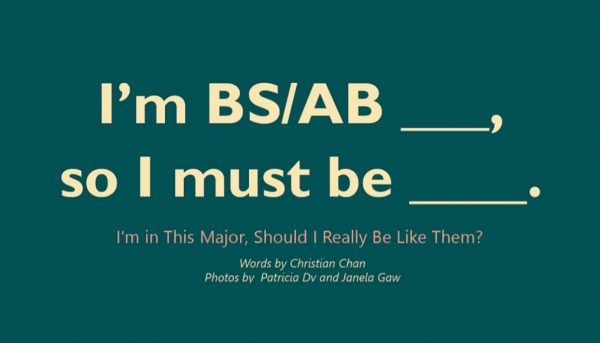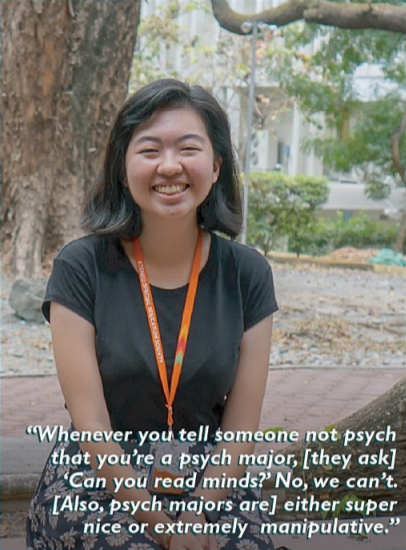Written by Christian Chan
Photos by Patricia Dy and Janela Gaw
*Note: What you are about to read are the views and opinions of the writer and the interviewees of this article. They do not reflect the views of staffers behind the magazine, nor Ateneo Celadon, nor the Ateneo community.
Every degree each one of us chooses has its own special flair. The soon-to-be-businessmen can emerge as great leaders and trailblazers. The aspiring scientists can become great thinkers and problem solvers. The budding artists can take the world through different directions. Future pastors and psychologists can engage with the people. The list goes on. These characteristics make the course degrees stand out and become interesting to incoming freshmen and shiftees alike.
However, with every degree comes certain labels and misconceptions that may evolve into the stereotypes we hear, if not debunked properly. Some of these stereotypes, particularly the negative ones, may hinder freshmen or shiftees from entering the degree. You, the reader, have no worries! What you are about to read are four undergraduates of different course degrees in the Ateneo. You will see who and what made them choose their degree and what they think about the stereotypes of their majors. These are their stories.
 Carlo Mendoza (4 BS Computer Science)
Carlo Mendoza (4 BS Computer Science)
Carlo’s interest in computers and programming since high school has led him to pick BS Computer Science as his first choice to take in college. He even sees the high-paying careers for a CS graduate.
Despite these, Carlo is aware of the stereotypes that describe him as a CS student. For him, majors in this field tend to feel a lot of pressure because they are expected to know a lot about computers—software, hardware, IT, internet, and so on.
Aside from this, Carlo is also aware of the “nerdy, mathematically-inclined major” stereotype. He feels that these stereotypes are isolating, discriminating, and negatively affecting personal and social life, making the person see the degree as a burden to himself instead of an avenue for growth. He believes that these stereotypes are not all true.
 Stefani Hazel Santos (1 BFA Theater Arts)
Stefani Hazel Santos (1 BFA Theater Arts)
Stefani’s conservative upbringing did not stop her from finding choices that would benefit her in the long run. One of her paths in life is to become a singer, so she chose BFA Theater Arts to improve her singing and incorporate emotion to make her music more relatable to those who hear it. With her talent in singing is her love for the artistic and the expressive; these allowed her to enjoy her degree.
At the same time, she is also aware of how fleeting a career in the arts can be. “In the entertainment industry,” she says, “there is a time where the artist is at the peak of fame and a time where the fame dies down.” It is a high-risk, high-reward job. Hence, she advises aspiring artists to have a supporting job. Despite this, she also believes that people should appreciate the arts more and follow their artistic dreams. She also praises her family for doing the best for her and for allowing her to express her artistic capabilities despite her limits and constraints.
Finally, with regards to the stereotype that TA majors are extroverted and outgoing, Stefani says that it is not all true. Some majors are introverted as well. Some of the characters they portray have personalities opposite of their natural personalities.
One of Sarina’s skills is that she can argue her case well, and her family saw that in her. Thus, to further hone her skills and follow her passions at the same time, Sarina took BS Psychology in hopes of getting into law school after she graduates. She is happy within her course, for it allows her to learn about people, help them, and venture into science.
At the same time, Sarina is aware of the stereotypes that come with being a Psychology major, such as being “telepathic, super friendly, or manipulative.” She believes that these don’t define a person and lauds General Psychology being in the curriculum so that other majors will get an overall view of their degree. She also believes that hard work pays off, but also that “all work and no play makes Jack a dull boy.”
Finally, Sarina believes that it is natural for humans to have certain assumptions of people, more so now that social media is. But at the same time, she believes that being open to rethinking stereotypes is important, since it can clear up misconceptions about one another.
 Terence Earl Kiu (4 BSM Applied Mathematics with Specialization in Mathematical Finance)
Terence Earl Kiu (4 BSM Applied Mathematics with Specialization in Mathematical Finance)
Terence’s love for Mathematics serve as his testimony to being and staying an AMF major. However, he is also aware of the common stereotype that people of the East are supposedly good at math, and that group of people includes the AMF majors. Despite this stereotype, he knows about how diligent and intelligent we are and how we always try to find the optimal solutions to our problems, just like those in Mathematics.
Like those four whose stories you have just read, people come from different backgrounds and have different interests. Their backgrounds and interests allow them to pick the courses they like, hoping that these courses will turn their interests into successful ventures. These four tell their stories to anyone who wants to read if they want to become a programmer, a psychologist, an actor, or a mathematician in the future. Their stories help us rethink the stereotypes that we, as outsiders, hear about them, and instead appreciate them and their degrees even more.
As a final note, stereotypes may still stay, but it does not define you or whatever degree you take or choose to take. Don’t let the course stereotypes bother you. Every degree is worth taking, so jump in!





